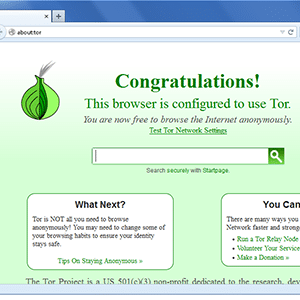More than ever, the online community is feeling the need to use tools to encrypt their content from end to end, to protect it from evil hands. After all, the Internet is full of risks and hazardous agents: hackers, Trojan horses, computer virus, spyware, adware, ransomware, and other types of malware, not to mention people trying to intercept your content and use it against you: governmental surveillance and intelligence agencies, copyright trolls, online advertising companies, and e-commerce shops, and so on.
Two of the most widely implemented tools to encrypt content and achieve satisfactory levels of online security, privacy, and anonymity are Tor and VPN. The former is a system acting like a web browser that hides the user’s shared content in such a way that it is entirely anonymous, thanks to a network of relays; while the latter comes in the form of apps that reroute the customer’s connection details through remote servers thanks to tunnelling protocols.
Both technologies achieve similar things: content and data protection and privacy. Of course, each one has its advantages and disadvantages when compared to the other one. In the Tor vs. VPN battle, which one comes out on top? Let’s find out.
 Tor洋葱路由器
Tor洋葱路由器
The Onion Router, better known as TOR because of its initials, is a pro-anonymity system that performs the functions of a web browser. However, it is not your average browser: it implements nodes and relays to connect the user to its desired server or page instead of offering a direct connection.
这种分散式系统或网络的节点只能识别位于其前后的 IP 地址,因此任何代理几乎都不可能跟踪连接请求所覆盖的完整路径。节点是随机的服务器,分布在不同的区域。
TOR 连接从头到尾都是加密的,这意味着它受到保护并经过节点或随机服务器。在到达最终目的地(即用户请求连接的网站)之前,信息会被解密。
VPN:虚拟专用网络
Virtual Private Networks are all-purpose security and privacy apps that also encrypt the user’s content from end to end, just like TOR. However, the modus operandi is entirely different: VPN, which are apps that can be found online, reroute the customer’s connection details, such as its online identity (IP address,) shared content online, browsing history, and more, only to send that information to remote servers away from the Internet Service Provider (ISP.)
通过使用被称为 "协议 "的技术(例如 OpenVPN、L2TP/IPSec、SSTP 和 IKEv2),VPN 应用程序建立了一个虚拟隧道,以保护数据不受任何可能对用户系统有害的外部代理的影响。
说到加密,VPN 堪称一绝。它将正确的协议与身份验证方法和数据加密相结合,从头到尾提供强大的内容保护。
Tor 与 VPN:两者相比有何不同?
由于这两种服务都能实现类似的目标,但使用的工具和方法却大相径庭,让我们来看看这两种服务各自的优势所在:
- 虽然 VPN 是解除被标记为地理封锁(即位于国家服务区域之外)内容的绝佳工具,但 TOR 只能在指定的出口节点位于首选国家时才能访问所需的网站。优势:VPN
- 虽然 VPN 技术可能会略微降低用户的网速,但 TOR 的网速要慢得多,因为连接请求在到达最终目的地之前要经过多个节点的转发。优势:VPN
- 虽然 VPN 技术意味着你可以匿名浏览网页,但你选择的品牌仍会看到你在网上分享的每一点数据以及你的 IP 地址。要实现完全匿名,TOR 是正确的选择。优势:TORTOR。
- 这两种软件都易于获取、安装和使用,而且适用于大多数设备、平台和操作系统。优势:EVEN.
- VPN 应用程序有免费和付费两种。不过,不推荐使用前者,因为其加密功能弱,隐私保护措施差。付费公司每月收取 3 到 15 美元不等的服务费,而 TOR 则不收取任何费用。优势:TORTOR。
- 在适当的情况下,这两种方法都可以被阻止。优势:EVEN.
- 大多数 VPN 品牌都允许 P2P 活动,这意味着您可以进行激流。TOR 不适用于 P2P。优势:VPN
- 有了合适的 VPN,您就可以在线播放流媒体内容。由于 TOR 的速度较慢,要求 TOR 支持这种活动可能太过分了。优势:VPNVPN
IPBurger is a recommended VPN brand for torrenting, streaming, anonymous browsing, and data protection. It has a thorough no logging policy and it implements robust encryption, so there are no DNS, IP, or WebRTC leaks. This affordable VPN comes with several plans, starting from $5 per month, and it has both shared and dedicated IP addresses to fulfil every need.
总之,TOR 和 VPN 都是方便的数据加密资源,各有利弊。总的来说,我们更喜欢 VPN 应用程序提供的整体方案,但事实上,将 TOR 和 VPN 的功能结合起来,将为促进网络安全提供完美的氛围。
 Tor洋葱路由器
Tor洋葱路由器

